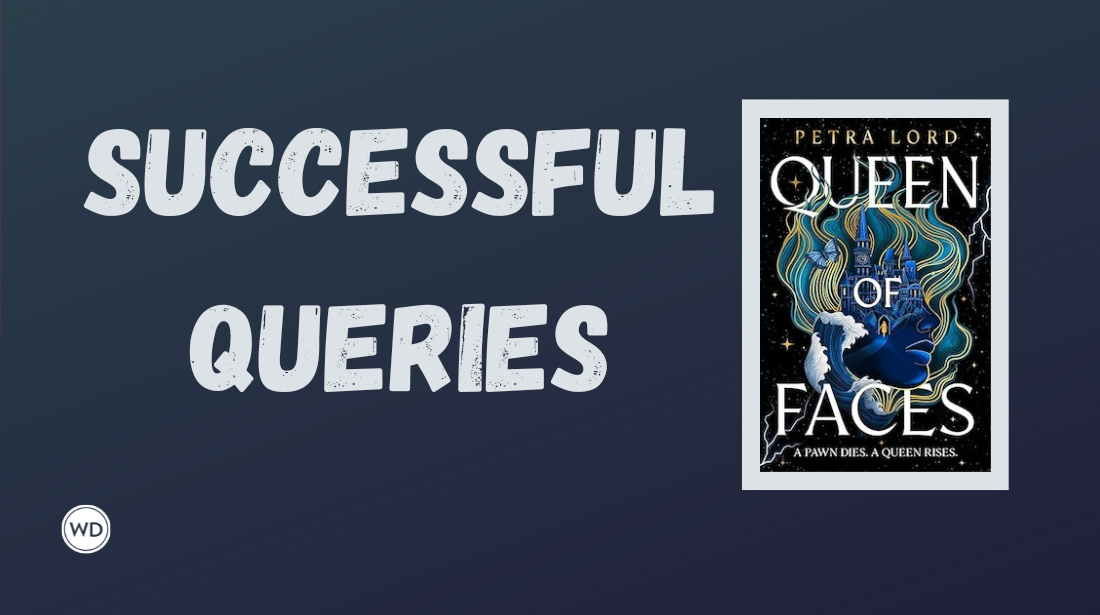114 Fiction Sub-Genre Descriptions for Writers
Here’s a breakdown of some of your favorite fiction genres, including romance, horror, thriller/suspense, science fiction/fantasy, and mystery/crime. Find more than 100 fiction sub-genre descriptions for writers.
Editor's Note: One of the most important things a writer can do when trying to pitch their novel is to identify the correct genre for their book. Knowing the correct sub-genre only improves a writer's chances, because it shows an understanding of the market that not every writer has.
As such, enjoy this listing of sub-genre descriptions for several popular fiction genres, including romance, horror, thriller/suspense, science fiction/fantasy, and mystery/crime.
ROMANCE
"A story that, at its core, is about a couple coming together to form a family unit."
—Steven Axelrod, agent
"If you can take the love interest out and it's still a story, it's not a romance."
—Jayne Ann Krentz, author
Chick-Lit: often humorous romantic adventures geared toward single working women in their twenties and thirties.
Christian: romances in which both hero and heroine are devout Christians, typically focused on a chaste courtship, and mentioning sex only after marriage.
Contemporary: a romance using modern characters and true-to-life settings.
Erotica: also called "romantica," a romance in which the bedroom doors have been flung open and sexual scenes are described in candid language.
Glitz/Glamor: focused on the jet-set elite and celebrity-like characters.
Historical: a romance taking place in a recognizable historical period.
Multicultural: a romance centered on non-Caucasian characters, largely African-American or Hispanic.
Paranormal: involving some sort of supernatural element, ranging widely to include science fiction/fantasy aspects such as time travel, monsters or psychic abilities.
Romantic Comedy: a romance focused on humor, ranging from screwball antics to witty interplay.
Romantic Suspense: a novel in which an admirable heroine is pitted against some evil force (but in which the romantic aspect still maintains priority).
Sensual: based on the sensual tension between hero and heroine, including sizzling sex scenes.
Spicy: a romance in which married characters work to resolve their problems.
Sweet: a romance centered on a virgin heroine, with a storyline containing little or no sex.
Young Adult: written with the teenage audience in mind, with a suitably lower level of sexual content.
*****
Push yourself beyond your comfort zone and take your writing to new heights with this novel writing workshop, designed specifically for novelists who are looking for detailed feedback on their work. When you take this online workshop, you won't have weekly reading assignments or lectures. Instead, you'll get to focus solely on completing your novel.
*****
HORROR
"Horror, for me, is the compelling 'don't want to look/must look' sense of awe we feel under the breastbone."
—Mort Castle, author
Child in Peril: involving the abduction and/or persecution of a child.
Comic Horror: horror stories that either spoof horror conventions or that mix the gore with dark humor.
Creepy Kids: horror tale in which children—often under the influence of dark forces—begin to turn against the adults.
Dark Fantasy: a horror story with supernatural and fantasy elements.
Dark Mystery/Noir: inspired by hardboiled detective tales, set in an urban underworld of crime and moral ambiguity.
Erotic Vampire: a horror tale making the newly trendy link between sexuality and vampires, but with more emphasis on graphic description and violence.
Fabulist: derived from "fable," an ancient tradition in which objects, animals or forces of nature are anthropomorphized in order to deliver a moral lesson.
Gothic: a traditional form depicting the encroachment of the Middle Ages upon the 18th century Enlightenment, filled with images of decay and ruin, and episodes of imprisonment and persecution.
Hauntings: a classic form centering on possession by ghosts, demons or poltergeists, particularly of some sort of structure.
Historical: horror tales set in a specific and recognizable period of history.
Magical Realism: a genre inspired by Latin-American authors, in which extraordinary forces or creatures pop into otherwise normal, real-life settings.
Psychological: a story based on the disturbed human psyche, often exploring insane, altered realities and featuring a human monster with horrific, but not supernatural, aspects.
Quiet Horror: subtly written horror that uses atmosphere and mood, rather than graphic description, to create fear and suspense.
Religious: horror that makes use of religious icons and mythology, especially the angels and demons derived from Dante's Inferno and Milton's Paradise Lost.
Science-Fiction Horror: SF with a darker, more violent twist, often revolving around alien invasions, mad scientists, or experiments gone wrong.
Splatter: a fairly new, extreme style of horror that cuts right to the gore.
Supernatural Menace: a horror tale in which the rules of normal existence don't apply, often featuring ghosts, demons, vampires and werewolves.
Technology: stories featuring technology that has run amok, venturing increasingly into the expanding domain of computers, cyberspace, and genetic engineering.
Weird Tales: inspired by the magazine of the same name, a more traditional form featuring strange and uncanny events (Twilight Zone).
Young Adult: horror aimed at a teen market, often with heroes the same age, or slightly older than, the reader.
Zombie: tales featuring dead people who return to commit mayhem on the living.
THRILLER/SUSPENSE
"One element to it may be that something bigger's at stake—if (the hero is) not successful, there will be a nuclear war."
—David Baldacci, author
"Any story that keeps you on the edge of your seat and, likely, up all night."
—Robert S. Levinson, author
Action: a story that often features a race against the clock, lots of violence, and an obvious antagonist.
Comic: a thriller played for laughs, whether through a spoof of the genre or wisecracking interplay between the protagonists.
Conspiracy: a thriller in which the hero battles a large, powerful group whose true extent only he recognizes.
Crime: a story focused on the commission of a crime, often from the point of view of the criminals.
Disaster: a story in which Mother Nature herself is the antagonist, in the form of a hurricane, earthquake or some other natural menace.
Eco-Thriller: a story in which the hero battles some ecological calamity—and often has to also fight the people responsible for creating that calamity.
Erotic: a thriller in which sex plays a major role.
Espionage: the classic international spy novel, which is enjoying a resurgence with one important change: where spies used to battle enemy spies, they now battle terrorists.
Forensic: a thriller featuring the work of forensic experts, whose involvement often puts their own lives at risk.
Historical: a thriller taking place in a specific and recognizable historic period.
Horror: a story—generally featuring some monstrous villain—in which fear and violence play a major part, complete with graphic descriptions.
Legal: a thriller in which a lawyer confronts enemies outside as well as inside the courtroom, generally putting his own life at risk.
Medical: a thriller featuring medical personnel, whether battling a legitimate medical threat such as a world-wide virus, or the illegal or immoral use of medical technology.
Military: a thriller featuring a military protagonist, often working behind enemy lines or as part of a specialized force.
Police Procedural: a crime thriller that follows the police as they work their way through a case.
Political Intrigue: a thriller in which the hero must ensure the stability of the government that employs him.
Psychological: a suspenseful thriller in which the conflict between the characters is mental and emotional rather than physical—until an often violent resolution.
Romantic: a thriller in which the protagonists are romantically involved.
Supernatural: a thriller in which the hero, the antagonist, or both have supernatural powers.
Technological: a thriller in which technology—usually run amok—is central to the plot.
Science Fiction/Fantasy
"'Imaginative fiction' is still my preferred term, which covers most things out of the ordinary."
—Jane Johnson (aka Jude Fisher), author/publisher
"Science fiction is potentially real; fantasy is not."
—Marlene Stringer, agent
Alternate History: speculative fiction that changes the accepted account of actual historical events, often featuring a profound "what if?" premise.
Arthurian Fantasy: reworkings of the legend of King Arthur and the Knights of the Round Table.
Bangsian Fantasy: stories speculating on the afterlives of famous people.
Biopunk: a blend of film noir, Japanese anime and post-modern elements used to describe an underground, nihilistic biotech society.
Children's Fantasy: a kinder, gentler style of fantasy aimed at very young readers.
Comic: fantasy or science fiction that spoofs the conventions of the genre, or the conventions of society.
Cyberpunk: stories featuring tough outsiders in a high-tech near-future where computers have produced major changes in society.
Dark Fantasy: tales that focus on the nightmarish underbelly of magic, venturing into the violence of horror novels.
Dystopian: stories that portray a bleak future world.
Erotic: SF or fantasy tales that focus on sexuality.
Game-Related Fantasy: tales with plots and characters similar to high fantasy, but based on a specific role-playing game like Dungeons and Dragons.
Hard Science Fiction: tales in which real present-day science is logically extrapolated to the future.
Heroic Fantasy: stories of war and its heroes, the fantasy equivalent of military science fiction.
High/Epic Fantasy: tales with an emphasis on the fate of an entire race or nation, often featuring a young "nobody" hero battling an ultimate evil.
Historical: speculative fiction taking place in a recognizable historical period.
Mundane SF: a movement that spurns fanciful conceits like warp drives, wormholes and faster-than-light travel for stories based on scientific knowledge as it actually exists.
Military SF: war stories that extrapolate existing military technology and tactics into the future.
Mystery SF: a cross-genre blend that can be either an SF tale with a central mystery or a classic whodunit with SF elements.
Mythic Fiction: stories inspired, or modeled on, classic myths, legends and fairy tales.
New Age: a category of speculative fiction that deals with occult subjects such as astrology, psychic phenomena, spiritual healing, UFOs and mysticism.
Post-Apocalyptic: stories of life on Earth after an apocalypse, focusing on the struggle to survive.
Romance: speculative fiction in which romance plays a key part.
Religious: centering on theological ideas, and heroes who are ruled by their religious beliefs.
Science Fantasy: a blend in which fantasy is supported by scientific or pseudo-scientific explanations.
Social SF: tales that focus on how characters react to their environments Ð including social satire.
Soft SF: tales based on the more subjective, "softer" sciences: psychology, sociology, anthropology, etc.
Space Opera: a traditional good guys/bad guys face off with lots of action and larger-than-life characters.
Spy-Fi: tales of espionage with SF elements, especially the use of high-tech gadgetry.
Steampunk: a specific type of alternate history in which characters in Victorian England have access to 20th century technology.
Superheroes: stories featuring characters endowed with superhuman strengths or abilities.
Sword and Sorcery: a classic genre often set in the medieval period, and more concerned with immediate physical threats than high or heroic fantasy.
Thriller SF: an SF story that takes on the classic world-at-risk, cliffhanger elements of a thriller.
Time-Travel: stories based on the concept of moving forward or backward in time, often delving into the existence of parallel worlds.
Urban Fantasy: a fantasy tale in which magical powers and characters appear in an otherwise normal modern context, similar to Latin American magical realism.
Vampire: variations on the classic vampire legend, recently taking on many sexual and romantic variations.
Wuxia: fantasy tales set within the martial arts traditions and philosophies of China.
Young Adult: speculative fiction aimed at a teenage audience, often featuring a hero the same age or slightly older than the reader.
Mystery/Crime
"The difference between thrillers and mysteries that there's a puzzle in the mystery. If you can disentangle it, it will lead you to the answer."
—Jean V. Naggar, agent
Amateur Detective: a mystery solved by an amateur, who generally has some profession or affiliation that provides ready access to information about the crime.
Child in Peril: a mystery involving the abduction or persecution of a child.
Classic Whodunit: a crime that is solved by a detective, from the detective's point of view, with all clues available to the reader.
Comic (Bumbling Detective): a mystery played for laughs, often featuring a detective who is grossly unskilled (but often solves the crime anyway, owing to tremendous good luck).
Cozy: a mystery that takes place in a small town—sometimes in a single home—where all the suspects are present and familiar with one another, except the detective, who is usually an eccentric outsider.
Courtroom Drama: a mystery that takes place through the justice system—often the efforts of a defense attorney to prove the innocence of his client by finding the real culprit.
Dark Thriller: a mystery that ventures into the fear factor and graphic violence of the horror genre.
Espionage: the international spy novel—here based less on action than on solving the "puzzle"—is today less focused on the traditional enemy spies than on terrorists.
Forensic: a mystery solved through the forensics lab, featuring much detail and scientific procedure.
Heists and Capers: an "antihero" genre which focuses on the planning and execution of a crime, told from the criminal's perspective.
Historical: a mystery that takes place in a specific, recognizable period of history, with much emphasis on the details of the setting.
Inverted: a story in which the reader knows "whodunit," but the suspense arises from watching the detective figure it out.
Locked Room: a mystery in which the crime is apparently committed under impossible circumstances (but eventually elicits a rational explanation).
Medical: generally involving a medical threat (e.g., a viral epidemic), or the illegitimate use of medical technology.
Police Procedural: a crime solved from the perspective of the police, following detailed, real-life procedures.
Private Detective: Focused on the independent snoop-for-hire, these have evolved from tough-guy "hard-boiled" detectives to the more professional operators of today.
Psychological Suspense: mysteries focused on the intricacies of the crime and what motivated the perpetrator to commit them.
Romantic: a mystery in which the crime-solvers fall in love.
Technothriller: a spinoff from the traditional thriller mystery, with an emphasis on high technology.
Thriller: a suspense mystery with a wider—often international—scope and more action.
Woman in Jeopardy: focuses on a woman put into peril by a crime, and her struggles to overcome or outwit the perpetrator.
Young Adult: a story aimed at a teenage audience, with a hero detective generally the same age or slightly older than the reader, pursuing criminals who are generally less violent—but often just as scary—as those in adult mysteries.









